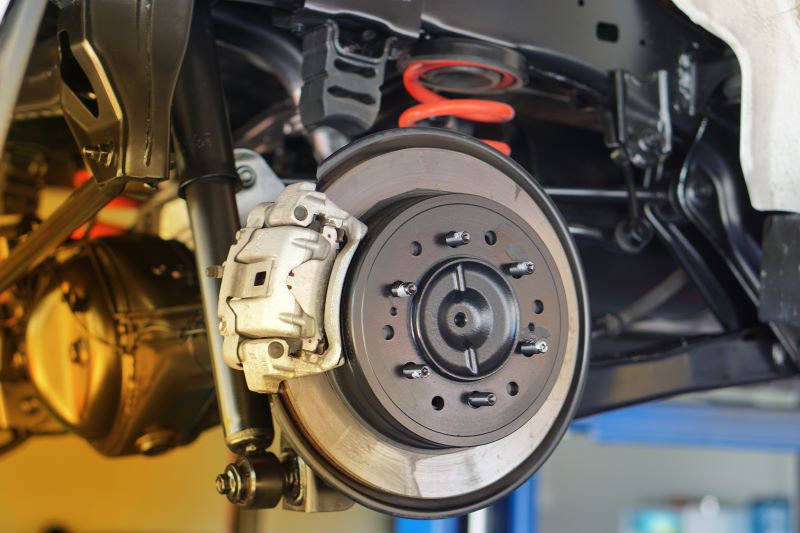
Brake pads are an important part of your braking system, as they produce the friction that slows and stops your car. These pads slowly wear out as they work, and need to be replaced every 25,000 to 65,000 miles, depending on your Buick model. As your Buick dealer, we want to tell you a few signs that it is time to visit us for new brake pads.
3 Signs You Need New Brake Pads From Your Buick Dealer
Screeching Noises
If you hear screeching noises when you brake, your pads have probably worn thin. Each pad has a special material cover that produces the friction that stops the rotors from turning. Each time you use the brakes, tiny particles of this material wear off. A healthy pad has a 1/2″ thick material cover. When this cover’s thickness drops to 1/4″ thickness, the pad needs replacement.
Pad manufacturers install a metal spike in the pad material, which becomes visible when the pad has worn down. The metal spike will scratch against the rotor surface when you brake and produce the high-pitched screeching you’re hearing. The spike can’t damage the rotor, but it is a warning that we need to replace the pads.
Grinding Noises
Harsh grinding noises from the brakes mean one or more pads are severely worn and could damage the rotors. If a brake pad’s martial cover wears offer completely, only the bare metal of the pad is left. The next time you hit the brakes, the metal on the pad will clamp directly onto the metal rotor. A bare pad has sharp edges, and these will score the rotor surface.
If you hear a grinding noise, it’s important to visit us for new pads ASAP. If you continue to use worn pads, the metal-on-metal contact can cause serious damage to the smooth rotor surface. A smooth surface is essential for allowing the brake pads to easily and efficiently grab the spinning rotors. We’ll replace the pads, and we can resurface or replace a damaged rotor if necessary.
Glazed Pads
Glazed pads look strange, as their surface is smooth and glass-like. The glazing effect is caused by a pad skimming along the surface of a rotor for a prolonged period. This can happen if a damaged caliper doesn’t fully retract when you take your foot off the brake. It can also be caused by riding your brakes.
A glazed pad can’t generate friction, and this means the affected pad can’t stop its wheel from moving. As a result, your car will turn to one side when you brake. We can quickly replace the glazed pad to fix this problem.
If your pads are worn, visit our service department right away at Granite Buick GMC in Rapid City, SD, and we’ll replace them.





